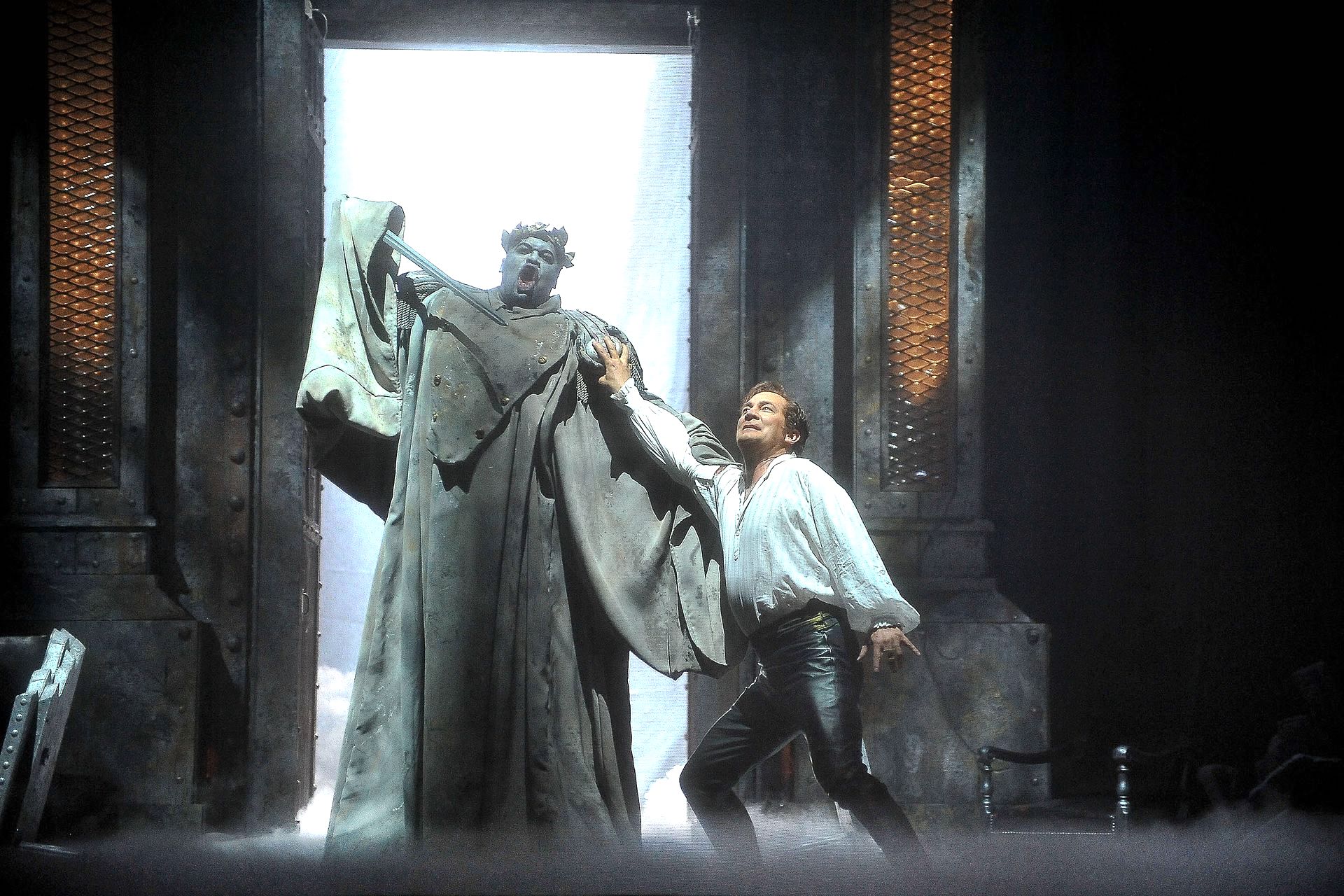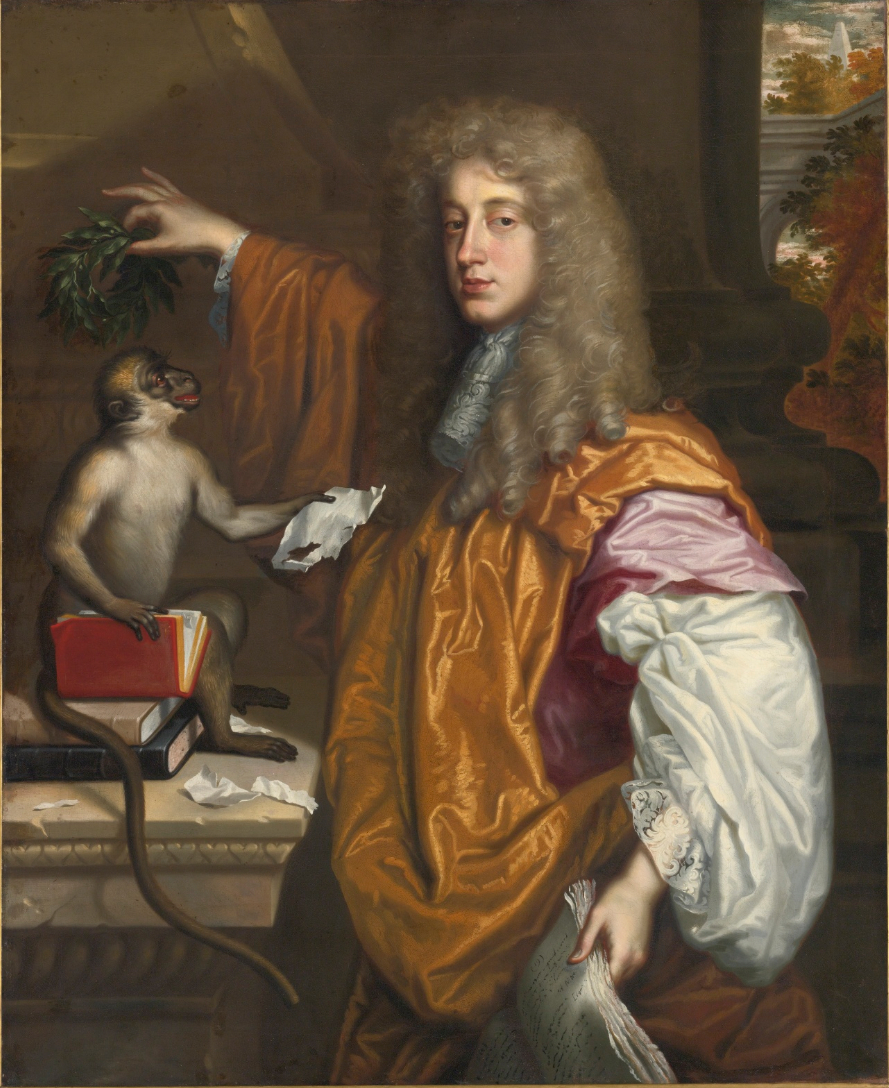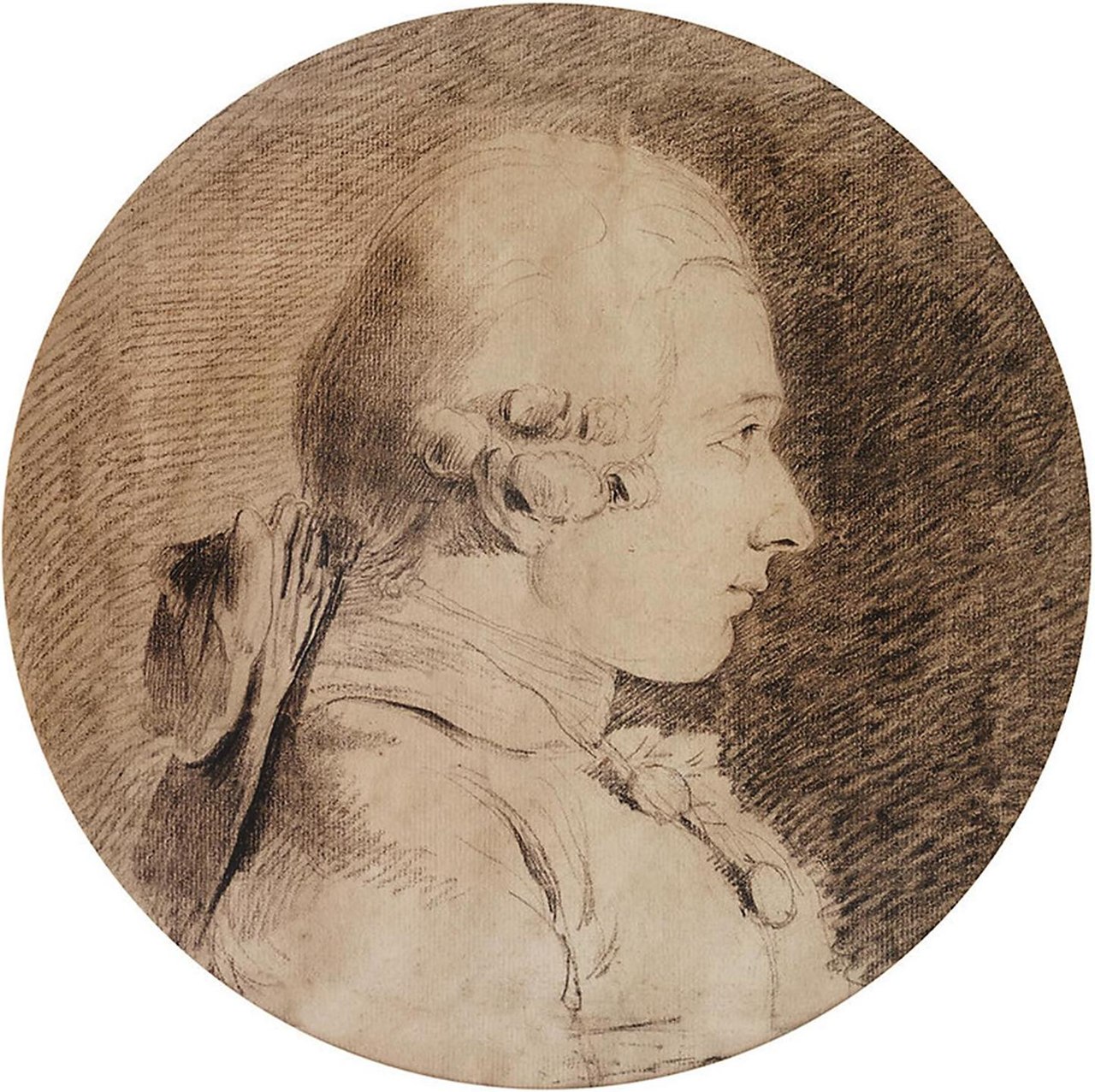
リベルタン
Libertine

石像(Morris Robinson)の懲罰により地獄に引き込まれるドン・ジョバンニ(David Pittsinger)
☆
リベルタン(libertin)とは、ルネサンス思想と啓蒙思想をつなぐ役割を果たした思想家のこと。もともと17世紀にはlibertinというフラン
ス語は不信仰者と放蕩者を同時に意味していたが、その後次第にもっぱら特定の傾向の思想を抱いた者たちを指すようになり、かならずしも放蕩者でない思想家
も指すようになった。具体的には次のような者たちを指している。リベルタンと呼ばれる人のリスト:テオフィル・ド・ヴィヨー
トリスタン・レルミット、
デ・バロー、
シラノ・ド・ベルジュラック、
シュヴァリエ・ド・メレ、
シャルル・ド・サン=テヴルモン、
アベ・ド・ショリュー、
ランクロ、
フォントネルら(下にリストアップ)。
| A
libertine is a person devoid of most moral principles, a sense of
responsibility, or sexual restraints, who sees these traits as
unnecessary or undesirable, and is especially someone who ignores or
even spurns accepted morals and forms of behaviour observed by the
larger society.[1][2] The values and practices of libertines are known
collectively as libertinism or libertinage and are described as an
extreme form of hedonism.[3] Libertines put value on physical
pleasures, meaning those experienced through the senses. As a
philosophy, libertinism gained new-found adherents in the 17th, 18th,
and 19th centuries, particularly in France and Great Britain. Notable
among these were John Wilmot, 2nd Earl of Rochester, and the Marquis de
Sade. |
リベルタンとは、ほとん
どの道徳的原則、責任感、性的抑制を欠いた人物のことであり、これらの特質を不必要または望ましくないと見なし、特に、より大きな社会で観察される、受け
入れられている道徳や行動様式を無視、あるいは無視する人物のことである[1][2]。リベルタンの価値観と実践は、リバティニズムまたはリバティナー
ジュとして総称され、快楽主義の極端な形態として説明される[3]。リベルタンは、肉体的快楽、つまり感覚を通して経験する快楽に価値を置く。哲学として
のリベルティニズムは、17世紀、18世紀、19世紀、特にフランスとイギリスで新たな信奉者を獲得した。ロチェスター伯爵ジョン・ウィルモットやサド侯
爵などがその代表的な人物である。 |
| The
word libertine was originally coined by John Calvin to negatively
describe opponents of his policies in Geneva, Switzerland.[4] The
group, led by Ami Perrin, argued against Calvin's "insistence that
church discipline should be enforced uniformly against all members of
Genevan society".[5] Perrin and his allies were elected to the town
council in 1548, and "broadened their support base in Geneva by
stirring up resentment among the older inhabitants against the
increasing number of religious refugees who were fleeing France in even
greater numbers".[5] By 1555, Calvinists were firmly in place on the
Genevan town council, so the Libertines, led by Perrin, responded with
an "attempted coup against the government and called for the massacre
of the French. This was the last great political challenge Calvin had
to face in Geneva".[5] In England, some Lollards held libertine views
such as that adultery and fornication were not sin, or that "whoever
died in faith would be saved irrespective of his way of life".[6] During the 18th and 19th centuries, the term became more associated with debauchery.[7] Charles-Maurice de Talleyrand wrote that Joseph Bonaparte "sought only life's pleasures and easy access to libertinism" while on the throne of Naples.[8] |
リベルタンという言葉は、もともとジョン・カルヴァンがスイスのジュネーブで彼の政策に反対する人々を否定的に表現するために作った造語である[4]。
アミ・ペランに率いられたこのグループは、カルヴァンの「教会の規律はジュネーブ社会のすべての構成員に対して一律に強制されるべきだという主張」に反対
していた。
[ペランとその同盟者たちは1548年に町議会議員に選出され、「フランスから逃れてくる宗教難民の数がさらに増えていることに対して、年配の住民の憤り
をあおることによって、ジュネーヴにおける彼らの支持基盤を広げた」[5]。1555年までには、カルヴァン派はジュネーヴの町議会で確固たる地位を築い
ていたため、ペランに率いられたリベルタン派は「政府に対するクーデターを企て、フランス人の虐殺を呼びかけた」。これはカルヴァンがジュネーヴで直面し
なければならなかった最後の大きな政治的挑戦であった」[5]。イギリスでは、姦淫や姦通は罪ではない、あるいは「信仰によって死んだ者はその生き方に関
係なく救われる」といった自由主義的な考えを持つロラードもいた[6]。 シャルル=モーリス・ド・タレーランは、ジョゼフ・ボナパルトがナポリの王位に就いていた時に「人生の快楽と自由主義への容易なアクセスのみを求めた」と書いている[8]。 |
| Literature Les Liaisons dangereuses (Dangerous Liaisons, 1782), an epistolary novel by Pierre Choderlos de Laclos, is a trenchant description of sexual libertinism. Wayland Young argues: "... the mere analysis of libertinism ... carried out by a novelist with such a prodigious command of his medium ... was enough to condemn it and play a large part in its destruction."[9]  John Wilmot by Jacob Huysmans Agreeable to Calvin's emphasis on the need for uniformity of discipline in Geneva, Samuel Rutherford (Professor of Divinity in the University of St. Andrews, and Christian minister in 17th-century Scotland) offered a rigorous treatment of "Libertinism" in his polemical work "A Free Disputation Against Pretended Liberty of Conscience" (1649). A Satyr Against Reason and Mankind is a poem by John Wilmot, 2nd Earl of Rochester which addresses the question of the proper use of reason, and is generally assumed to be a Hobbesian critique of rationalism.[10] The narrator subordinates reason to sense.[11] It is based to some extent on Boileau's version of Juvenal's eighth or fifteenth satire, and is also indebted to Hobbes, Montaigne, Lucretius, and Epicurus, as well as the general libertine tradition.[12] Confusion has arisen in its interpretation as it is ambiguous as to whether the speaker is Rochester himself, or a satirised persona.[13] It criticises the vanities and corruptions of the statesmen and politicians of the court of Charles II.[12] The libertine novel was a primarily 18th-century literary genre of which the roots lay in the European but mainly French libertine tradition. The genre effectively ended with the French Revolution. Themes of libertine novels were anti-clericalism, anti-establishment and eroticism.  Marquis de Sade by Charles-Amédée-Philippe van Loo Authors include Claude Prosper Jolyot de Crébillon (Les Égarements du cœur et de l'esprit, 1736; Le Sopha, conte moral, 1742), Denis Diderot (Les bijoux indiscrets, 1748), Marquis de Sade (L'Histoire de Juliette, 1797–1801), Choderlos de Laclos (Les Liaisons dangereuses, 1782), and John Wilmot (Sodom, or the Quintessence of Debauchery, 1684). Other famous titles are Histoire de Dom Bougre, Portier des Chartreux (1741) and Thérèse Philosophe (1748). Precursors to the libertine writers were Théophile de Viau (1590–1626) and Charles de Saint-Evremond (1610–1703), who were inspired by Epicurus and the publication of Petronius. Robert Darnton is a cultural historian who has covered this genre extensively.[14] A three-part essay in The Book Collector by David Foxen explores libertine literature in England, 1660-1745.[15] Critics have been divided as to the literary merits of William Hazlitt's Liber Amoris, a deeply personal account of frustrated love that is quite unlike anything else Hazlitt ever wrote. Wardle suggests that it was compelling but marred by sickly sentimentality, and also proposes that Hazlitt might even have been anticipating some of the experiments in chronology made by later novelists.[16] One or two positive reviews appeared, such as the one in the Globe, 7 June 1823: "The Liber Amoris is unique in the English language; and as, possibly, the first book in its fervour, its vehemency, and its careless exposure of passion and weakness—of sentiments and sensations which the common race of mankind seek most studiously to mystify or conceal—that exhibits a portion of the most distinguishing characteristics of Rousseau, it ought to be generally praised".[17] Dan Cruickshank in his book London's Sinful Secret summarized Hazlitt's infatuation stating: "Decades after her death Batsy (Careless) still haunted the imagination of the essayist William Hazlitt, a man who lodged near Covent Garden during the 1820s, where he became unpleasantly intimate with the social consequences of unconventional sexual obsession that he revealed in his Liber Amoris of 1823, in which he candidly confessed to his infatuation with his landlord's young daughter."[18] |
文学 ピエール・ショデルロ・ド・ラクロの書簡小説『危険な関係』(Les Liaisons dangereuses, 1782)は、性的放縦主義を痛烈に描写している。ウェイランド・ヤングはこう主張する: 「......自由主義の単なる分析は......このような天才的な媒体を使いこなす小説家によって行われた......自由主義を非難し、その破壊に 大きな役割を果たすのに十分であった」[9]。  ヤコブ・ユイスマンス作『ジョン・ウィルモット』 サミュエル・ラザフォード(セント・アンドリュース大学神学教授、17世紀スコットランドのキリスト教牧師)は、ジュネーヴにおける規律を統一する必要性 を強調したカルヴァンの意見に賛同し、その極論的著作『良心のふりした自由に対する自由論争』(1649年)の中で「自由主義」を厳格に扱った。 A Satyr Against Reason and Mankind』はロチェスター伯爵ジョン・ウィルモットの詩で、理性の適切な使用に関する問題を扱ったものであり、一般的には合理主義に対するホッブズ 的な批判であると考えられている[10]。 [ホッブズ、モンテーニュ、ルクレティウス、エピクロス、そして一般的な自由主義者の伝統にも依拠している。 [12]ロチェスター自身なのか、風刺された人物像なのかが曖昧であるため、解釈に混乱が生じている[13]。 自由主義小説は主に18世紀の文学ジャンルで、そのルーツはヨーロッパの、しかし主にフランスの自由主義の伝統にあった。このジャンルはフランス革命とともに事実上終焉した。自由主義小説のテーマは、反宗教主義、反体制、エロティシズムであった。  シャルル=アメデ=フィリップ・ヴァン・ロー作『サド侯爵』 作者にはクロード・プロスペール・ジョリオ・ド・クレビヨン(Les Égarements du cœur et de l'esprit、1736年; Le Sopha, conte moral, 1742)、ドゥニ・ディドロ(Les bijoux indiscrets, 1748)、サド侯爵(L'Histoire de Juliette, 1797-1801)、ショデルロ・ド・ラクロ(Les Liaisons dangereuses, 1782)、ジョン・ウィルモット(Sodom, or the Quintessence of Debauchery, 1684)などがいる。 その他の有名なタイトルは、『Histoire de Dom Bougre, Portier des Chartreux』(1741年)と『Thérèse Philosophe』(1748年)である。 エピクロスとペトロニウスの出版に影響を受けたテオフィル・ド・ヴィアウ(1590-1626)とシャルル・ド・サン=エヴルモンド(1610-1703)が、自由主義作家の先駆者である。 ロバート・ダーントンは文化史家であり、このジャンルを幅広く取り上げている[14]。 デヴィッド・フォクセンによる『ブック・コレクター』誌の3部構成のエッセイは、1660年から1745年にかけてのイギリスにおけるリベルタン文学を探求している[15]。 批評家たちの間では、ウィリアム・ハズリットの『Liber Amoris』の文学的な是非について意見が分かれている。ウォードルは、説得力はあるが病的な感傷に傷つけられていると指摘し、ハズリットは後の小説家 たちによる時系列の実験のいくつかを先取りしていた可能性さえあると提唱している[16]。 1823年6月7日付の『グローブ』紙に掲載された批評のように、肯定的な批評も1つか2つあった: リベール・アモリスは英語ではユニークであり、その熱気、激しさ、そして情熱と弱さ、つまり一般的な人種が最も努めて神秘化したり隠そうとする感情や感覚 を無造作にさらけ出した最初の本であり、ルソーの最も特徴的な特徴の一部を示しているので、一般に賞賛されるべきである」[17] ダン・クルックシャンクはその著書『ロンドンの罪深い秘密』の中で、ハズリットの熱愛を要約してこう述べている: 1820年代にコヴェント・ガーデンの近くに下宿していた彼は、1823年の『リベール・アモリス』(Liber Amoris)の中で、家主の若い娘との熱愛を率直に告白している。 |
| Philosophy During the Baroque era in France, there existed a freethinking circle of philosophers and intellectuals who were collectively known as libertinage érudit and which included Gabriel Naudé, Élie Diodati and François de La Mothe Le Vayer.[19][20] The critic Vivian de Sola Pinto linked John Wilmot, 2nd Earl of Rochester's libertinism to Hobbesian materialism.[21] |
哲学 フランスのバロック時代には、ガブリエル・ナウデ、エリー・ディオダティ、フランソワ・ド・ラ・モテ・ル・ヴェイエなど、リベルティナージュ・エリュディ と総称される自由思想的な哲学者や知識人のサークルが存在していた[19][20]。 批評家ヴィヴィアン・ド・ソラ・ピントは、ロチェスター第2伯爵ジョン・ウィルモットのリベルティナージュをホッブズの唯物論と結びつけた[21]。 |
| Rulers and political figures Al-Amin, the sixth Abbasid ruler[22] Caligula, third Emperor of Rome Edward VII of Great Britain Elagabalus George IV of the United Kingdom Henry IV of France Louis XV of France, King of France from 1715 to 1774 Sir Charles Sedley, 5th Baronet, English noble[23] Dominique Strauss-Kahn, French economist and politician[24] John Wilkes[25] Religious leaders Aleister Crowley, creator of Thelema[26] Anton Szandor LaVey, founder of the Church of Satan and creator of LaVeyan Satanism[27] Pope Alexander VI, Pope of the Catholic Church from 1492 to 1503[28] Actors Tallulah Bankhead, American actress[29] Charlie Sheen, American actor[30][31] Musicians Lorenzo Da Ponte, Italian librettist Marilyn Manson, American industrial rock/metal musician who plays with his band of the same name Jim Morrison, musician best known as the singer and primary songwriter of The Doors[32][33] Writers Abu Nuwas al-Salami, a classical Arabic poet[34] Marquis de Sade, French novelist, after whom the term "sadism" is named Ivan Barkov, Russian poet[35] Charles Baudelaire, French poet[36] Aphra Behn, English playwright[37] Cyrano de Bergerac, French novelist Bussy-Rabutin, cousin of Madame de Sévigné, and author of Histoire Amoureuse des Gaules (chronicling the love affairs of the court of Louis XIV). Lord Byron, English poet[38] Arthur Rimbaud, French poet[39] Others Giacomo Casanova, Italian adventurer[40] Don Juan, legendary character known for his machismo and sexuality[41] |
支配者と政治家 アル=アミン、アッバース朝第6代支配者[22]。 カリグラ、第3代ローマ皇帝 エドワード7世(イギリス エラガバルス イギリスのジョージ4世 フランスのヘンリー4世 ルイ15世(1715年から1774年までフランス王 サー・チャールズ・セドリー、第5男爵、イギリスの貴族[23]。 ドミニク・ストロスカーン、フランスの経済学者、政治家[24]。 ジョン・ウィルクス[25] 宗教指導者 アレイスター・クロウリー、テレマの創始者[26]。 アントン・サンドル・ラヴェイ、悪魔教会の創設者であり、ラヴェイ派悪魔主義の創始者[27]。 教皇アレクサンダー6世、1492年から1503年までのカトリック教会の教皇[28]。 俳優 タルーラ・バンクヘッド、アメリカの女優[29]。 チャーリー・シーン、アメリカの俳優[30][31]。 音楽家 ロレンツォ・ダ・ポンテ、イタリアの作曲家 マリリン・マンソン、アメリカのインダストリアル・ロック/メタル・ミュージシャン。 ジム・モリソン(Jim Morrison)、ザ・ドアーズのシンガー兼主要ソングライターとして知られるミュージシャン[32][33]。 作家 Abu Nuwas al-Salami、アラビア古典詩人[34]。 マルキ・ド・サド、フランスの小説家。 イワン・バルコフ、ロシアの詩人[35]。 シャルル・ボードレール、フランスの詩人[36]。 アフラ・ベーン、イギリスの劇作家[37]。 シラノ・ド・ベルジュラック、フランスの小説家 ブッシー=ラブタン、セヴィニエ夫人のいとこで、『ゴール家の恋愛史』(ルイ14世の宮廷恋愛の記録)の著者。 バイロン卿、イギリスの詩人[38]。 アルチュール・ランボー、フランスの詩人[39]。 その他 ジャコモ・カサノバ、イタリアの冒険家[40]。 ドン・ファン、マチズモと性欲で知られる伝説的人物[41]。 |
| Amoralism Antinomianism Bacchanalia Bohemianism Cainites Charvaka Cyrenaics Decadence Hellfire Club Hookup culture Epicureanism Free love Hypersexuality Incest taboo LaVeyan Satanism Libertarianism Libertine novel The Libertines Moral nihilism Orgy Polyamory Rake (character) Sodomy Sodom and Gomorrah Sexual deviancy Sexual revolution Swinging (sexual practice) Taboo |
アモラリズム 反知性主義 バッカナリア ボヘミアニズム カイン派 シャルヴァカ派 キレネ派 デカダンス ヘルファイア・クラブ フックアップ文化 エピクロス主義 自由恋愛 ハイパーセクシュアリティ 近親相姦タブー ラヴェイヤン悪魔主義 リバタリアニズム リバティーン小説 リバティーンズ 道徳的ニヒリズム 乱交パーティー ポリアモリー レーキ(キャラクター) ソドミー ソドムとゴモラ 性的逸脱 性革命 スウィング(性行為) タブー |
リ ンク
文 献
そ の他の情報
Copyleft, CC, Mitzub'ixi Quq Chi'j, 1996-2099
☆
 ☆
☆